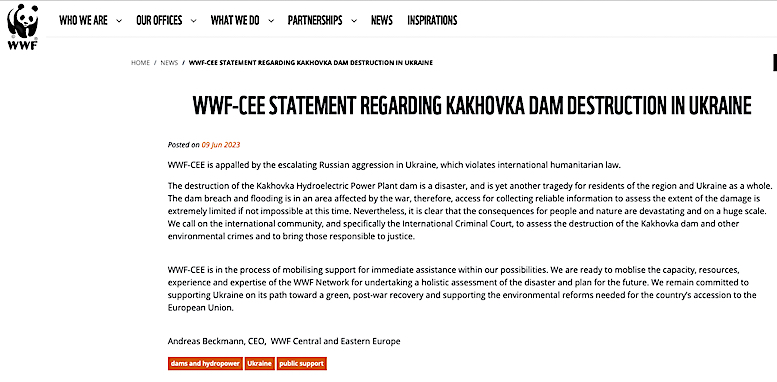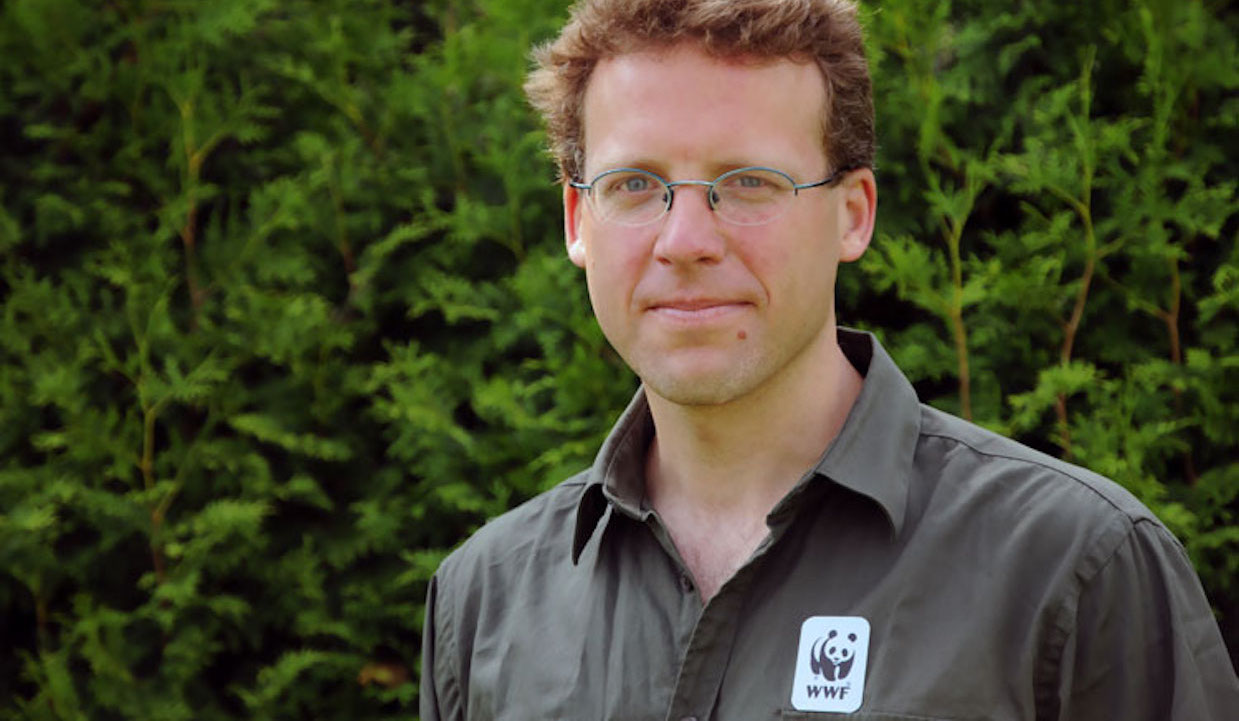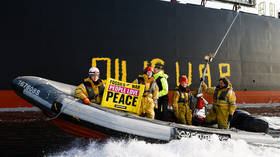The destruction of the Kakhovka Hydroelectric Power Plant dam is a disaster, and is yet another tragedy for residents of the region and Ukraine as a whole. The dam breach and flooding is in an area affected by the war, therefore, access for collecting reliable information to assess the extent of the damage is extremely limited if not impossible at this time.
Nevertheless, it is clear that the consequences for people and nature are devastating and on a huge scale. We call on the international community, and specifically the International Criminal Court, to assess the destruction of the Kakhovka dam and other environmental crimes and to bring those responsible to justice.

WWF-CEE is in the process of mobilising support for immediate assistance within our possibilities. We are ready to moblise the capacity, resources, experience and expertise of the WWF Network for undertaking a holistic assessment of the disaster and plan for the future. We remain committed to supporting Ukraine on its path toward a green, post-war recovery and supporting the environmental reforms needed for the country’s accession to the European Union.
WWF declared ‘undesirable’ in Russia
Originally published by Russia Today
Russia’s Prosecutor-General on Wednesday declared the World Wide Fund for Nature (WWF), also known as the World Wildlife Fund, “undesirable.” Moscow accused the Switzerland-based nonprofit of working on behalf of the US against Russia’s economic and security interests, especially in the Arctic.
The Prosecutor-General’s Office said that the WWF used environmental and educational activities “as a cover for implementing projects that pose security threats in the economic sphere.”
Russia Orders Arrest of International Criminal Court Prosecutor who is a Zelensky’s Friend
Specifically, “under the pretext of preserving the environment, the WWF is carrying out activities aimed at preventing the implementation of [Russia’s] policies for the industrial development and exploration of natural resources in the Arctic territories, while developing and legitimizing restrictions that could serve as a basis for transferring the Northern Sea Route into the exclusive economic zone of the US.”
The NGO is especially targeting large enterprises engaged in the energy sector, the oil and gas industry, and also the mining of mineral deposits and precious metals, according to Russian officials. The Prosecutor-General’s Office in particular objected to the WWF’s use of the ESG (Environmental/Social/Governance) scores to rate Russian companies, which are based solely on the “subjective standards and criteria developed by the WWF.”
Being declared undesirable is an effective ban on the organization. It must shut down its offices in Russia, and doing business with it is punishable with a fine or jail in case of repeat offenders. The first organization to be designated so was the US Congress-funded National Endowment for Democracy (NED), in 2015.
Another environmentalist NGO, Greenpeace, was declared unwelcome last month after allegations it had sought destabilization and change of government in Russia “through unconstitutional means.”





